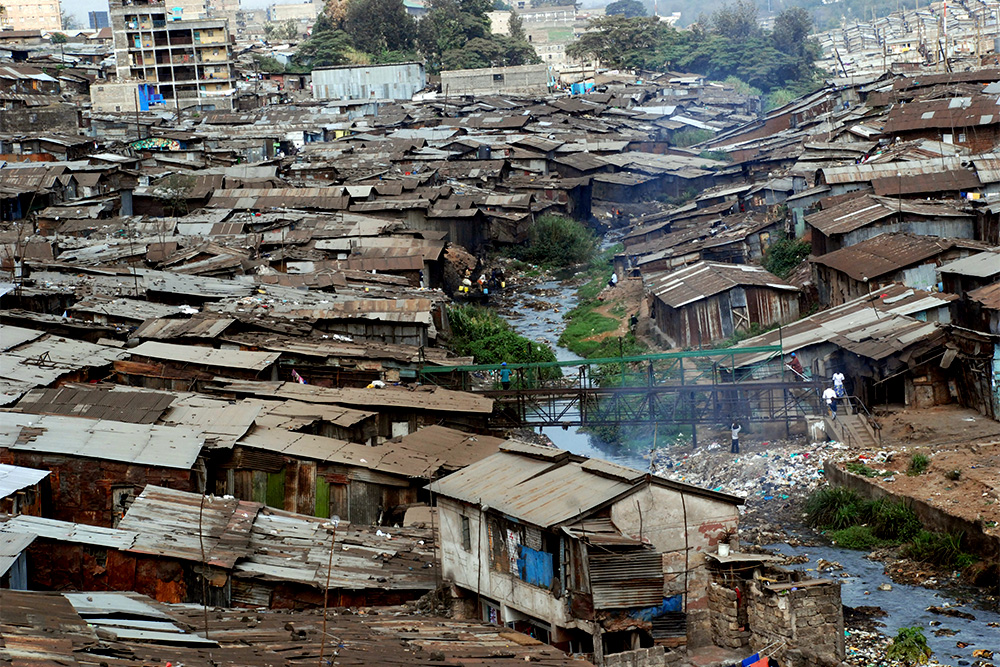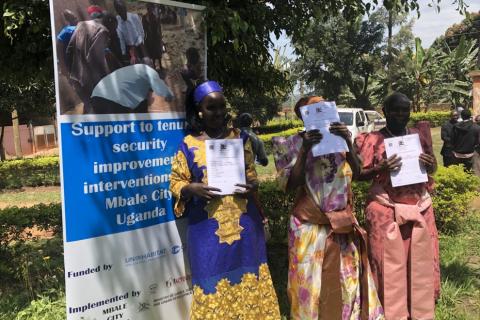
Topics and Regions
Landpages.co.ke is a medium of passing this message.
Details
Public Email
Location
Contributions
Displaying 621 - 630 of 740Learn how to measure SDG Indicator 11.1.1 – Adequate Housing and Slum Upgrading
This course includes self-paced e-learning training modules which present descriptive and practical step-by-step guidance on how to compute SDG 11+ indicators. It is aimed at strengthening national and city capacities in collecting, analyzing, and monitoring the urban SDG indicators.
This training course is intended for all the professionals involved in monitoring and reporting on SDG 11 indicators and anyone who wishes to get guidance in the monitoring process.
Responsible Land Governance in LDN Programmes
The Decision on Land Tenure (Decision 26/ COP.14) by the United Nations Convention to Combat Desertification (UNCCD) recognises the importance of responsible land governance for sustainable land management and restoration, as well as for combatting desertification, land degradation and drought.
Responsible Land Governance in LDN Programmes
Land degradation neutrality (LDN) is increasingly recognized as an effective mechanism to address land degradation and sustain ecosystems. Although this mechanism could accelerate the achievement of SDGs, we should approach with caution many of the policy measures proposed within countries’ LDN target-setting programmes to avoid violating rights to land and resources.
Bazuar në praktikat rregullative në Evropë
Land consolidation is a highly effective land management instrument that allows for the improvement of the structure of agricultural holdings and farms in a country, which increases their economic and social efficiency and brings benefits both to right holders as well as to society in general. Since land consolidation gives mobility to land ownership and other land rights, it may also facilitate the allocation of new areas with specific purposes other than agriculture, such as for public infrastructure or nature protection and restoration.
Bazuar në praktikat rregullative në Evropë
Land consolidation is a highly effective land management instrument that allows for the improvement of the structure of agricultural holdings and farms in a country, which increases their economic and social efficiency and brings benefits both to right holders as well as to society in general. Since land consolidation gives mobility to land ownership and other land rights, it may also facilitate the allocation of new areas with specific purposes other than agriculture, such as for public infrastructure or nature protection and restoration.
Scaling up Community-based Land Registration and Land Use Planning on Customary Land in Uganda” project launched
Much of the land in Uganda is subject to customary tenure. Because it is not officially registered, land users fear that they may be forced off their land. Registering land has many benefits: it gives the users more security and means they can invest in the land and pass it on to their children.
Uganda issues first ever Certificates of Customary Ownership in urban areas
On 2 December 2021 the mayor of Mbale City, Cassim Namugali, issued 511 Certificates of Customary Ownership in a colourful ceremony. The event took place at Wanale Division Hall in Mbale City. These are the first ever such certificates to be issued in an urban area in Uganda. Several hundred Mbale residents took part in the ceremony.
Toward a land policy in the Democratic Republic of Congo: National validation workshop, Kinshasa 15-17 November 2021
A national validation workshop discussed the draft National Land Policy Document of the Democratic Republic of the Congo in Kinshasa on 15–17 November 2021.
The workshop was part of a process that began in November 2018 at the Bukavu interprovincial forum to formulate a new national land policy. The Bukavu forum identified strategic options that were turned into a draft policy document in December 2018. This first draft was submitted to a series of consultations in all 26 provinces in the country with a wide range of stakeholders.
WOMEN, LAND AND PEACE
These messages were developed based on the field experience in fragile and crisis affected contexts of UN-Habitat and the partners of the Global Land Tool Network and the HLP Area of Responsibility of the Global Protection Cluster. They are a quick reference on how to empower women and protect their housing, land and property rights in fragile and crisis affected contexts and why this is an essential element to sustain peace and stability.
Metadata on SDGs Indicator 15.3.1
Indicator 15.3.1: Proportion of land that is degraded over total land area




